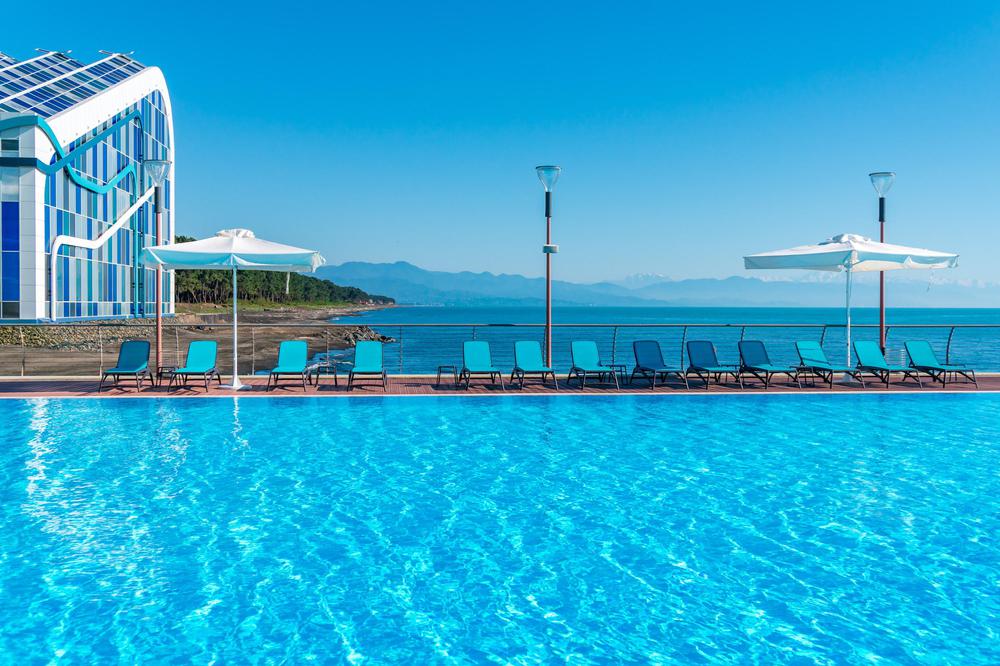Tbilisi, the vibrant capital of Georgia, has a rich tradition in hammam culture, deeply rooted in its history and social fabric. Hammams, widely recognized as Turkish baths, play a significant role in the spa and wellness sector of Tbilisi, offering a unique blend of relaxation, cultural immersion, and historical significance.
Historical Context of Hammams
The concept of the hammam, originating from the Arabic word for 'bath', is deeply embedded in various cultures, including Roman, Byzantine, and Islamic societies. Historically, public bathhouses were vital in these civilizations, serving not just as places for bathing but also as social and cultural hubs. The adaptation of bathhouses in Islamic societies, particularly during the expansion of Arab Muslim rule, was driven by religious practices requiring purification before prayer and a general emphasis on physical and spiritual cleanliness. Despite some initial resistance from Islamic scholars, hammams eventually became integral to Muslim society, appreciated for their convenience and the pleasure they provided. This cultural heritage, including the architecture and operational nuances of hammams, has varied across regions, with each area adding its unique touch to the basic concept.
Tbilisi's Hammam Tradition
In Tbilisi, hammams have been a part of its cultural tapestry for centuries. Tbilisi itself, founded in the fifth century AD, boasts a diverse architectural landscape, reflecting its historical journey through various eras. The city's strategic location, at the crossroads between Europe and Asia, has made it a melting pot of cultures, evident in its diverse population and architectural styles ranging from medieval to modern. This rich history is also mirrored in its hammam culture, which has evolved over time, blending various influences to create a distinctive Georgian bathhouse experience.
The Hammam Experience
A visit to a Tbilisi hammam typically involves progressing through rooms with varying temperatures, inducing relaxation and perspiration. Unlike the Roman or Greek baths where immersion in standing water was common, Islamic bathing practices, including those in hammams, usually involve washing with running water. This practice aligns with Islamic requirements for purity and cleanliness. The experience is often concluded with a wash in warm water, sometimes accompanied by services like vigorous rubbing and soap massages, performed by staff matching the visitor's gender.
Hammams and Wellness
The significance of hammams in wellness and spa culture cannot be understated. Throughout history, bathing in natural springs or constructed baths has been associated with physical and spiritual purification. This belief is rooted in various ancient civilizations, including Arabs, Greeks, Romans, and Persians, and continues in many modern religious practices. Today, hammams are seen not just as places for bathing but as spaces for holistic healing and relaxation, echoing the ancient belief in the therapeutic properties of water.
Practical Information
When visiting Tbilisi and exploring its renowned hammam culture, there are several notable options for a truly authentic and relaxing experience. Each offers a unique blend of traditional Georgian bathhouse practices and modern spa amenities:
Orbeliani Baths:
This is perhaps the most famous area in Tbilisi for hammams, known for its historical significance and thermal springs. A room at Orbeliani’s Thermal Spa in Abanotubani is highly recommended for an early morning treat, providing an immersive experience with a scrub that leaves the skin feeling rejuvenated.
Sam Raan Spa & Wellness Center:
Located at 24, 300 Aragvelli St. / 14, Ialbuzi St., Tbilisi 0144, this luxury spa offers a diverse range of therapies, including Thai massage, Oriental Hammam, and Ayurveda. The facility also boasts a Himalayan Salt Room, Dead Sea Floating, and Kneipp therapy, along with an indoor pool, beauty salon, gym, and adventure showers.
Royal Bath:
Situated on Abano St., Royal Bath offers a premium experience with a suite including a large pool with warm to hot sulphurous water, a smaller cold mineral water pool, and a sauna. For 150 Lari, you get a private suite for an hour, complete with towels, slippers, and a separate bathroom. It's a perfect way to soothe aching muscles after a day of exploring Tbilisi.
Gulo's Thermal Spa:
Found on Grishashvili St., 5, Tbilisi, Gulo's offers private rooms with saunas, praised for their pleasant staff and family-friendly atmosphere. Towel rental and other amenities are available at an additional cost, but the overall experience is noted for its value and relaxation.
Go Gudauri Spa Centre:
Although not in Tbilisi itself, for those traveling to the Gudauri region, this spa centre is worth mentioning. It's an ideal place to unwind after enjoying the outdoor activities Gudauri is known for.
When visiting these spas, it's advisable to remove all jewelry, as the sulphuric water can alter their color. If you're planning to get a massage and prefer to remain clothed, wearing a bandeau top without straps can be practical. It's also recommended to bring your own towel, shampoo, and conditioner to avoid additional charges, though these are usually available for a nominal fee.
Conclusion
Tbilisi hammams represent a unique intersection of history, culture, and wellness. They offer more than just a bathing experience; they are a gateway to understanding the rich tapestry of Georgian history and the diverse influences that have shaped its capital city. As an essential part of Tbilisi's spa and wellness scene, these hammams continue to be a testament to the city's enduring heritage and its capacity to blend tradition with modernity.

 Gudauri
Gudauri
 Tbilisi's Sulphur Baths
Tbilisi's Sulphur Baths
 How to Take a Sulphur Bath
How to Take a Sulphur Bath




